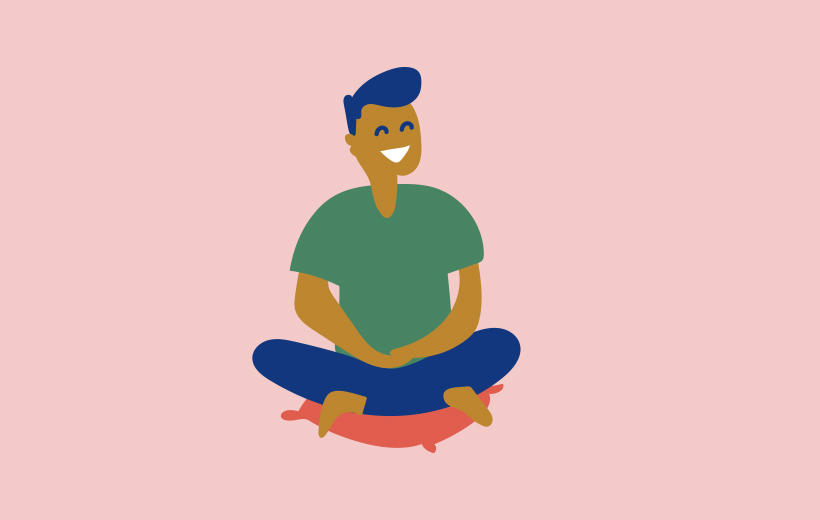Dealing with Loneliness – Meditation for Loneliness
By Yongey Mingyur Rinpoche • 4 min read
By Yongey Mingyur Rinpoche • 4 min read
If we’re coping with a heavy, complicated problem, we’re often too busy to feel lonely. But sometimes, loneliness itself becomes our major problem. What’s happening is that our monkey mind is zooming in on the feeling, exaggerating it. Sometimes we think, “I don’t really have any good friends,” when what we really mean is we do, but they’re not around, or we don’t feel connected to them at that moment. Sometimes we think, “Oh, I don’t want to be around other people,” and we isolate ourselves. Later on, when our mood has shifted and we want company, we forget that we ourselves created that environment, and we feel lonely.

I spent four and a half years on a wandering retreat. When I was in the mountains, there would be nobody around for miles. I would have to walk for two days down the mountainside and two days back up again, all without seeing another human being. Sometimes I felt lonely. But what I eventually discovered was that it’s possible to be totally alone, but gain a different perspective on solitude, and come to appreciate it. On that retreat, I knew I was by myself — there was nobody there to talk to, unless I wanted to talk to the rocks or trees! However, although I was totally alone, I could still feel the connection between myself and my friends. They were not physically present at the moment, but they did exist. I still had the connection to my teachers. I still had connections to my students, even though none of them knew where I was. And especially, I had a connection with my path — my practice. My spiritual journey and my practice had become my best friends.
If you feel lonely, start by making a list of your friends. Most people don’t have very many; maintaining more than one or two close friendships at a time is actually quite difficult. If you do have more than just a couple, appreciate it. Try to connect with some of your relatives. Don’t feel shy about trying to reconnect with old friends or family members — it doesn’t matter what the history of your relationship is, if you want to contact them, let go of the past and reach out. If you can have social gatherings, spend some time in good conversation with a few people. These things are all very beneficial.
Most important of all is that you have so many good friends within you. There is your awareness — the basic quality of your mind. Awareness is your friend, source of refuge, and teacher. Plus, you have love, compassion, and wisdom. These great qualities are truly your best friends. Of course, in the beginning, it isn’t easy to believe you have these wonderful friends within, but eventually, with meditation practice, you will come to believe it.
Developing a habit of appreciation is also important. Each day, find three things to appreciate about yourself, the environment around you, and the world. Keep changing up the focus. For instance, maybe for one day, focus on being grateful for three things about yourself. Then the next day, express gratitude for three things around you. The next day, have appreciation for three things about the world. If you do this every day for one month, you will not feel so lonely!
“Awareness is your friend, and your source of refuge, and also your teacher. At the same time, you have love and compassion. They are your best friends!”
– Mingyur Rinpoche –
If you enjoyed reading our articles, please join our mailing list and we’ll send you our news and latest pieces.
Speaking from personal experience during his four-and-a-half-year wandering retreat, Mingyur Rinpoche teaches us how to work with a sense of loneliness. Most importantly, he invites us to appreciate friends both near and far, extrinsic and intrinsic — as well as the very solitude itself.
Learn meditation under the skillful guidance of world-renowned teacher Yongey Mingyur Rinpoche at your own pace.

In his approach to teaching meditation, Mingyur Rinpoche integrates traditional Buddhist practice and philosophy with the current scientific understanding of the mind and mental health – making the practice of meditation relevant and accessible to students around the world. Mingyur Rinpoche is the author of the best-selling book The Joy of Living: Unlocking the Secret and Science of Happiness, as well as Joyful Wisdom: Embracing Change and Finding Freedom, In Love with the World: A Monk’s Journey Through the Bardos of Living and Dying, and many others.

In popular imagination, Buddhism is often seen as equating life with suffering, but that’s not really accurate. In fact, Buddhism sees a lot of suffering as completely avoidable.

"Trying harder and putting in that extra bit of exertion was so counterproductive!"

“Fifteen or twenty minutes of formal, seated meditation a day to anchor and develop your practice, and then – since you can’t always be sitting on a cushion in a nice quiet room — plenty of informal meditation throughout the day. Repeat as necessary…ideally, throughout your life!”
If you enjoyed reading our articles, please join our mailing list and we’ll send you our news and latest pieces.
